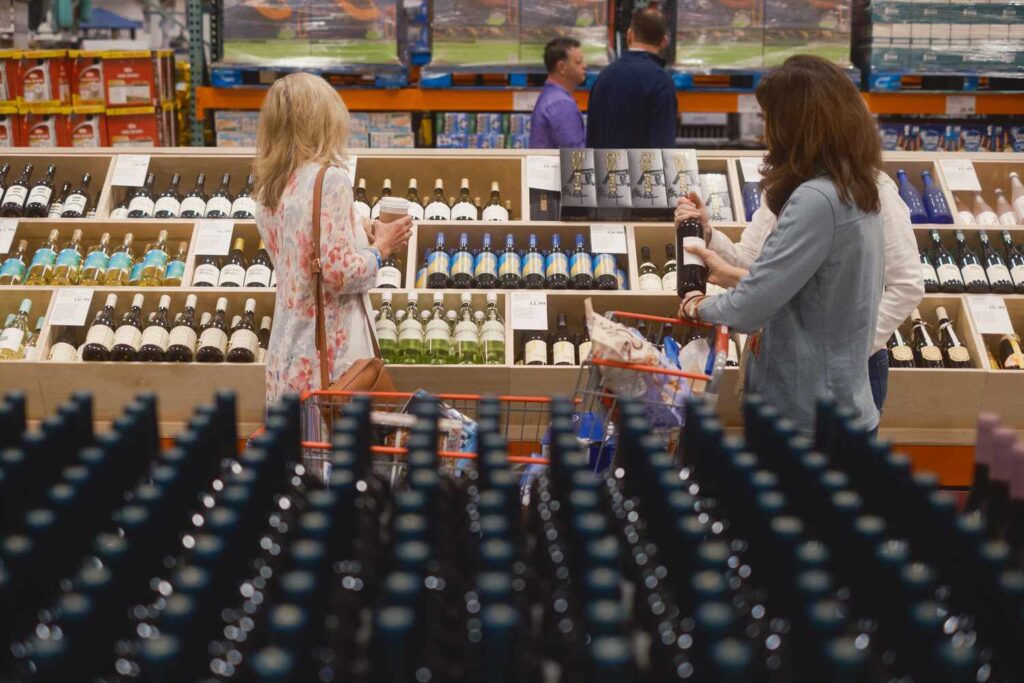:max_bytes(150000):strip_icc():format(jpeg)/GettyImages-1249944928-a2bd23c10c874f9d8f1c986db8bc9a57.jpg)
Key Takeaways
- Alcohol is the third-leading preventable cause of cancer and should come with warning labels that note it causes cancer, Surgeon General Dr. Vivek Murthy said.
- Many Americans are unaware that alcohol heightens their risk of developing seven types of cancer, he noted.
- Congress would need to act to change warning labels, according to the U.S. Alcohol and Tobacco Tax and Trade Bureau.
- Shares of companies that produce and distribute beers, wines and spirits fell Friday.
Surgeon General Dr. Vivek Murthy on Friday called for placing new warning labels on alcohol as the U.S. Department of Health and Human Services (HHS) said that drinking is the third-leading preventable cause of cancer in the country.
Less than half of Americans are aware that alcohol increases their risk of cancer despite evidence that drinking contributes to seven types of the disease, according to the HHS, of which the Surgeon General is a part. To spread awareness, alcoholic beverages should be packaged with warning labels that state drinking causes cancer, and consumption guidelines should be reassessed, Murthy said in a press release Friday.
“Alcohol is a well-established, preventable cause of cancer responsible for about 100,000 cases of cancer and 20,000 cancer deaths annually in the United States – greater than the 13,500 alcohol-associated traffic crash fatalities per year in the U.S. – yet the majority of Americans are unaware of this risk,” Murthy said.
According to HHS, alcohol is linked to a higher risk of developing breast, colorectum, esophagus, liver, mouth, throat and larynx or voicebox cancer. Only smoking tobacco and obesity pose a greater cancer risk when looking at factors over which people have control, the department said.
Warning Label Would Require Congressional Approval
Federal officials are in the process of updating nutritional guidelines for alcohol, but changing the warning label on alcoholic beverages would require approval from Congress, according to the U.S. Alcohol and Tobacco Tax and Trade Bureau.
Current warning labels on alcohol caution that drinking while pregnant can cause birth defects, and that alcohol can impair one’s ability to drive and cause health problems.
This message hasn’t changed since approved in 1988, according to the Consumer Federation of America, a nonprofit consumer advocacy group that has been urging the federal government and Congress to note the link between drinking and cancer in warning labels.
Alcoholic Beverage Company Stocks Slide
Shares of companies that make and distribute beers, wines and spirits lost ground Friday as investors weighed how the warning from health authorities could affect alcohol sales.
Shares of Diageo (DGE), which makes Johnnie Walker whiskey, Tanqueray gin and Guinness beer among other alcohol brands, fell 3.7% on Friday. Beer companies Anheuser-Busch InBev (BUD), Molson Coors Beverage (TAP) and Boston Beer (SAM) dropped 2.1%, 3.4% and 3.8%, respectively.
Incoming U.S. President Donald Trump’s talk of increasing tariffs and broader cultural shifts away from drinking may also be weighing on alcohol companies.
Alcohol Consumption Has Been Declining
Concerns about the adverse impacts of drinking had begun to affect alcohol sales before Murthy’s announcement. People of all ages are tempering their consumption due to health concerns, Deutsche Bank Securities analysts wrote last month, while recommending holding a number of alcohol companies.
Consumers may also be imbibing less because of financial concerns, evolving social norms and the availability of weight-loss drugs, such as Wegovy and Zepbound, that may reduce alcohol consumption, Deutsche and other analysts said.
The number of alcohol bottles and cans sold by major retailers and convenience stores in the U.S. fell 0.9% year-over-year through mid-December, and 1.4% over the past two years, according to NielsenIQ, a market research firm. Still, slightly more bottles of spirits were sold, the data showed.
Dry January, when people start off the new year by abstaining from drinking, is starting to bleed into later months, according to IWSR. The tradition tends to depress sales in January and February, the group said.
“These troughs are getting consistently lower – a clear indication of growing moderation and the ongoing momentum of Dry January,” said Marten Lodewijks, president of IWSR’s U.S. Division.
UPDATE: This article has been updated after publication to include closing share prices, additional context and analysis.


